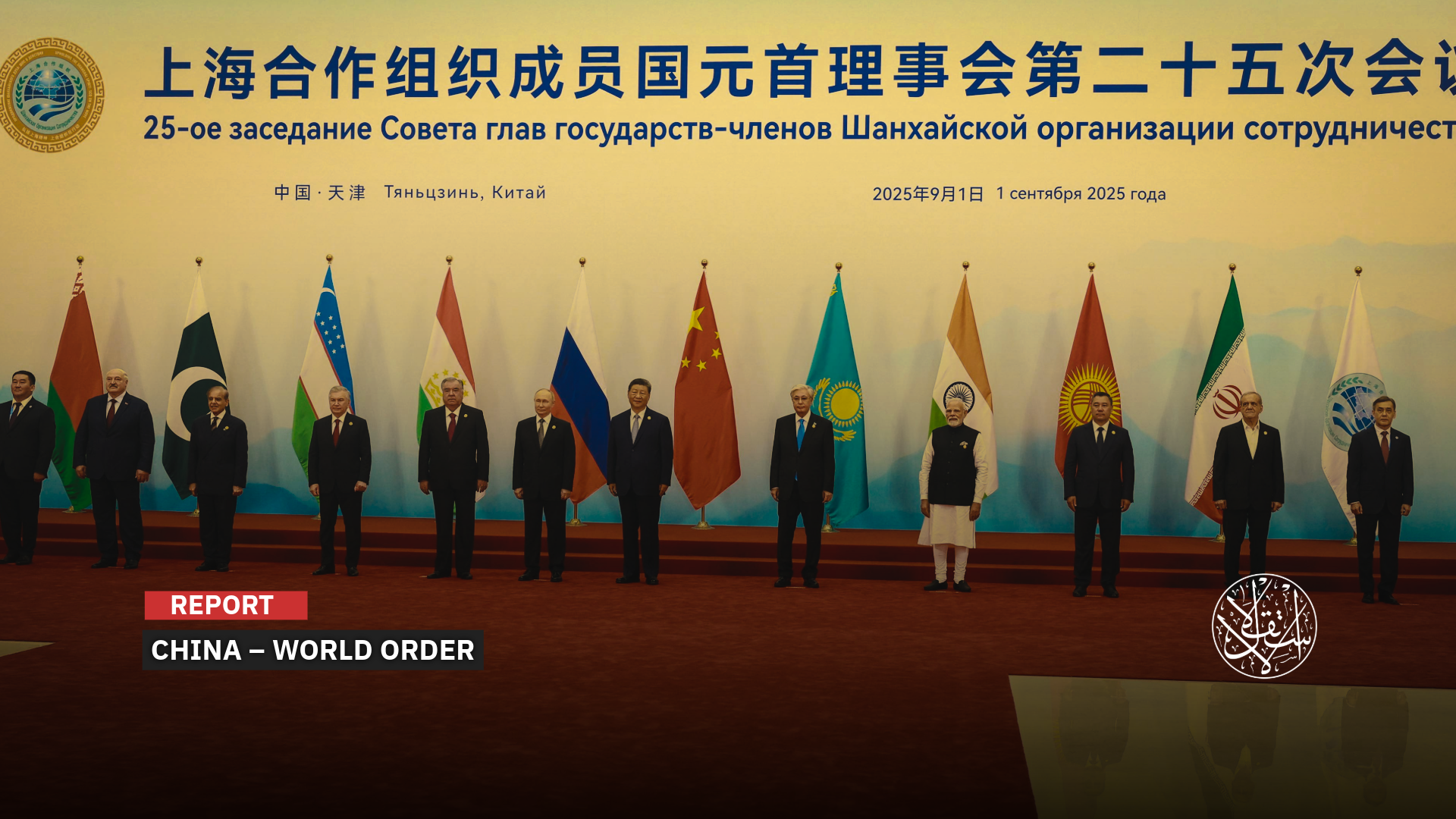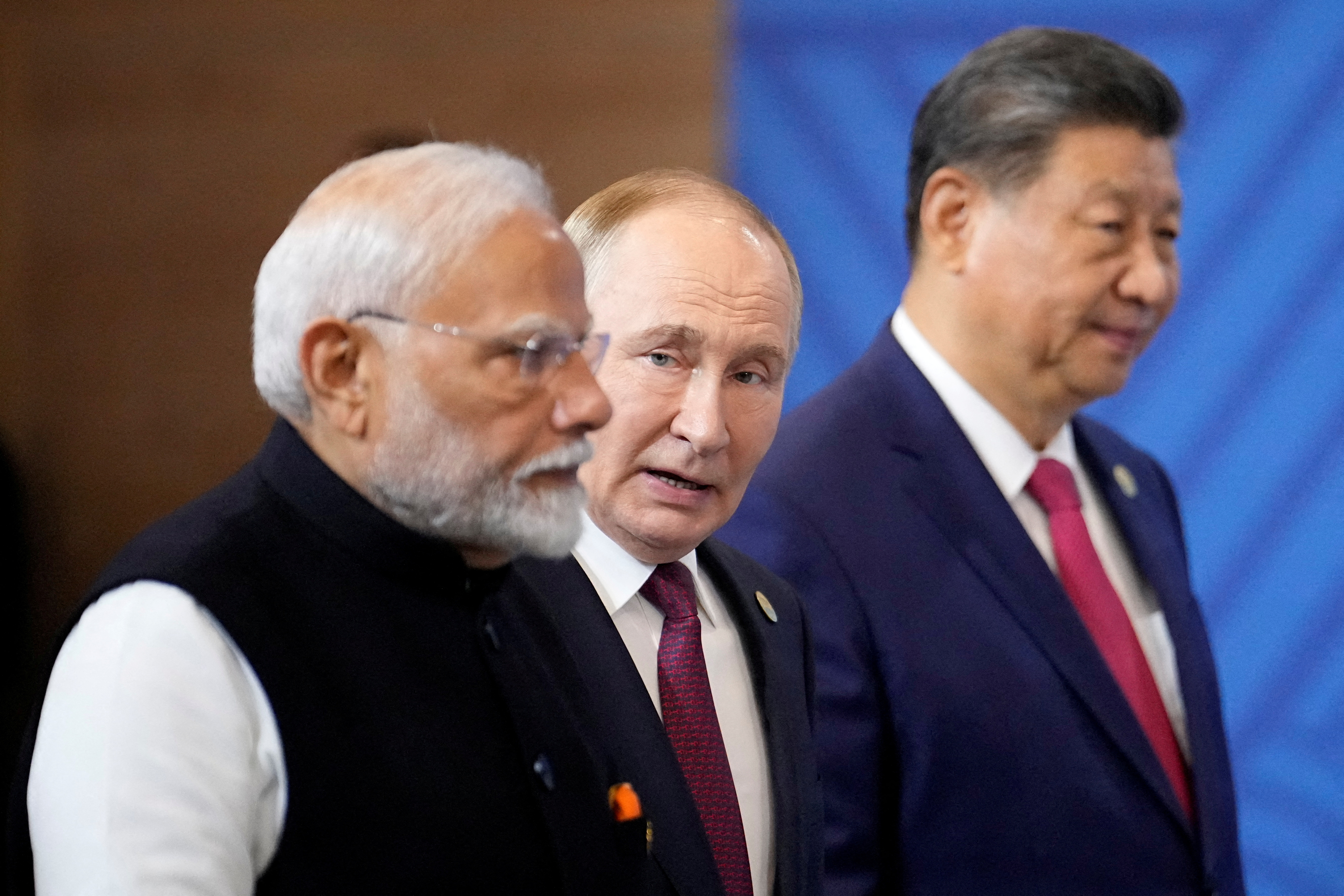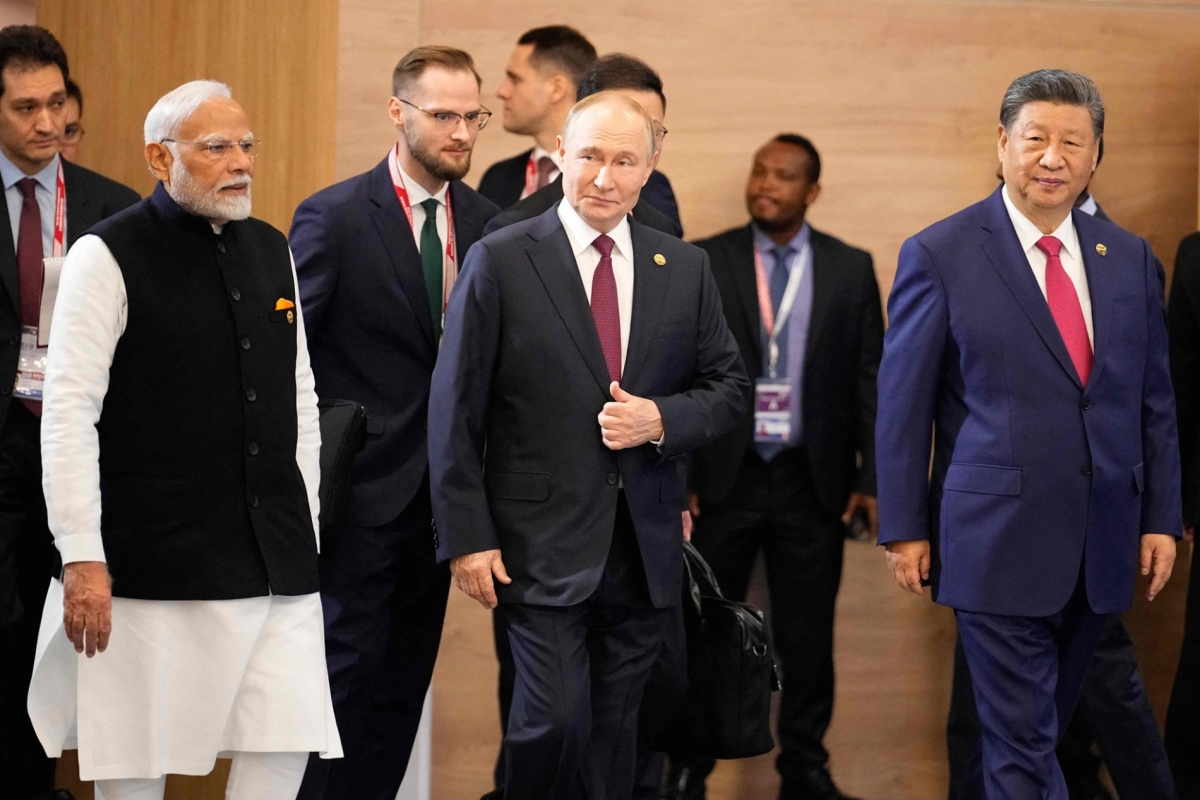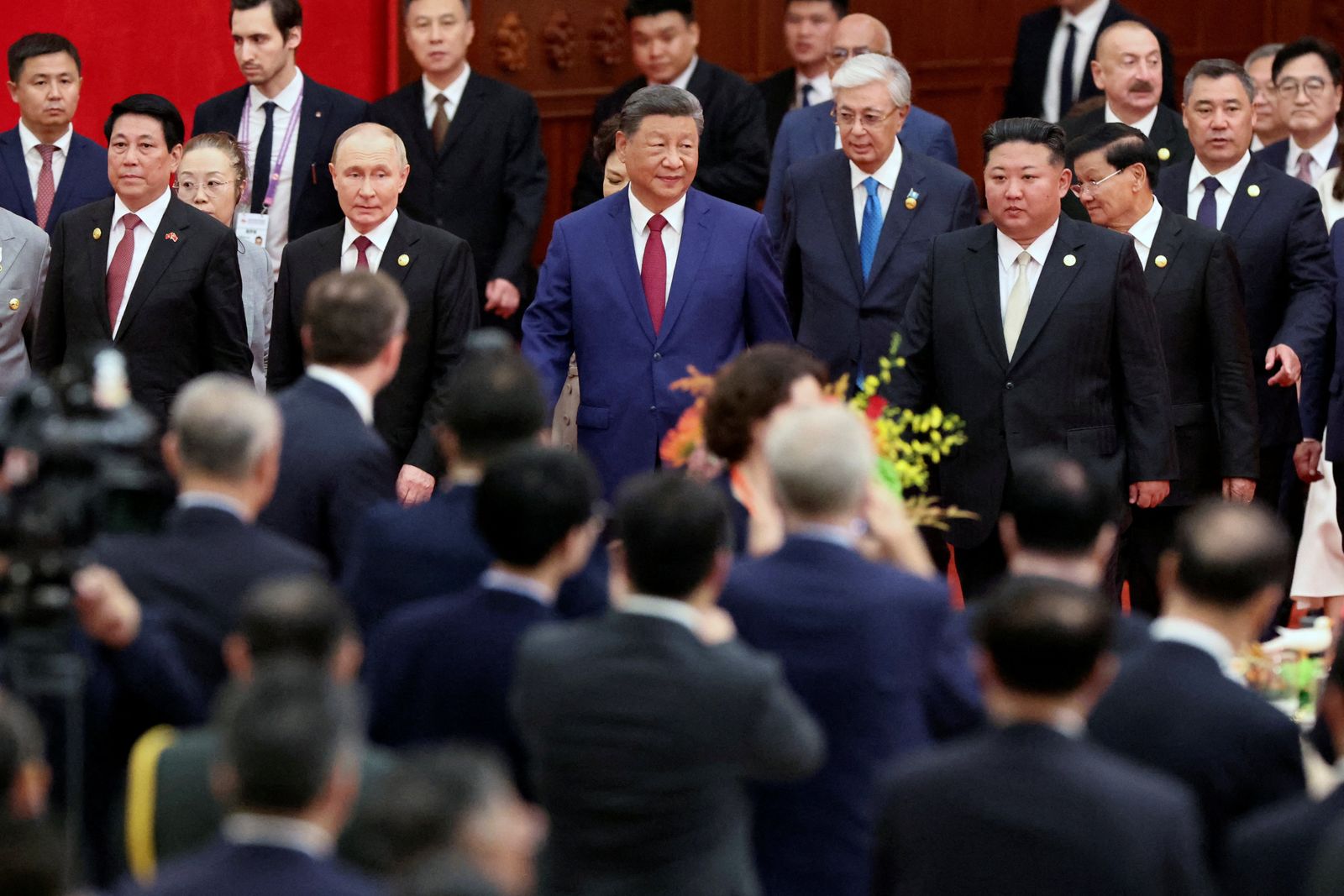Is the Shanghai Cooperation Organization Shaping a New World Order?

“An alliance between China, Russia and India would be a significant factor in reshaping the world order.”
China recently hosted the Shanghai Cooperation Organization (SCO) summit, attended by leaders from more than 20 countries and representatives of 10 international organizations, culminating in a massive military parade in the capital, Beijing, to mark the 80th anniversary of the end of World War II.
The summit, held in Tianjin on August 31 and September 1, revealed that the world order dominated by the U.S. and the West for the past eight decades is no longer as stable as before, and that geopolitical winds are shifting towards a new multipolar world.
Chinese President Xi Jinping summarized the event with profound words, stating: “Today, humanity faces a choice between peace or war, dialogue or confrontation, and mutual benefit or a zero-sum game.”
These words were not mere political rhetoric, but a historic declaration of a collective will to shape a new global order as an alternative to the Western-led order.
Are we truly witnessing the beginning of a multipolar world?
Can a regional security initiative like the SCO evolve into a bloc capable of challenging US hegemony?
What could the trilateral meeting between the leaders of China, Russia, and North Korea signify?
Strategic Influence
The SCO summit, which concluded this week, sent several political messages, most notably the rejection of the Cold War mentality and policies of domination, a call for a more just world order, and the launch of several strategic initiatives.
The summit featured high-level bilateral meetings between China and Russia, India, Turkiye, and countries from Southeast Asia and Central Asia, reflecting the strategic intent to expand the organization's influence internationally.
In turn, Chinese President Xi Jinping proposed a new initiative for global governance, calling for a new world order based on genuine multipolarity, reduced dependence on the West, and the creation of alternative institutions that address the interests of the Global South.
This is the fourth major initiative Xi has launched on the international stage in recent years, following his proposals on global development, global security, and global civilization.
However, Xi's latest initiative was accompanied by concrete actions, most notably the announcement of plans to establish a new development bank for the organization, and the creation of platforms for cooperation in energy, artificial intelligence, green industry, and the digital economy.
Beijing also pledged to provide 2 billion yuan ($280 million) in grants and 10 billion yuan ($1.4 billion) in concessional loans to members of the organization.
Xi's initiative sparked widespread debate in both economic and political circles, with opinions divided between those who viewed it as a serious attempt to reshape the international financial system and those who considered it a politically motivated move with limited impact.
China, which has become the world's second-largest economy over the past two decades, now sees itself as in a position to compete with the U.S. economically, and even to develop alternative institutional frameworks for the international financial system that has been in place since the end of World War II.
Xi's initiative also came at a time of great complexity in the global landscape, as the international economic system faces increasing pressure due to the escalating trade war led by US President Donald Trump.
It is also suffering from declining market confidence in the stability of global supply chains, in addition to the heavy burdens placed on emerging economies by rising US interest rates.
All of this imbued the Chinese president's initiative with a symbolic dimension that transcended the boundaries of the SCO, making it appear as a direct challenge to US financial dominance.
In turn, US Treasury Secretary Steven Mnuchin, in an interview with Fox News, pointed out that China cannot replace Western markets with those in the Global South, as these markets lack the high income levels necessary to absorb its exports.
It is worth noting that trade volume between China and SCO member states reached approximately $295 billion in the first seven months of 2025, a significant increase from the $190 billion recorded in 2024.

Radical Shift
The SCO, which began in June 2001 as a regional security alliance between China, Russia, and the Central Asian states, has expanded over the past two decades into a group of 27 countries spanning Asia, Europe, and Africa.
The SCO, which currently comprises ten member states and seventeen observer or partner states, represents 40% of the world's population and more than 23% of global GDP.
Its recent summit in Tianjin witnessed dozens of high-level meetings, the most prominent of which was the meeting between President Xi Jinping and Indian Prime Minister Narendra Modi, the first such meeting in seven years.
The leaders of the two most populous countries in the world, representing some 2.8 billion people, pledged to strengthen cooperation and work towards resolving their long-standing border dispute.
This rapprochement comes at a time when both countries are facing pressure from high US tariffs. The summit also highlighted an unprecedented meeting between Xi, Modi, and Russian President Vladimir Putin.
The three leaders were seen shaking hands and smiling during a break in the summit, at a time when the U.S. is accusing India and China of supporting Russia in its war against Ukraine.
For his part, Putin expressed his support for Xi's initiatives, stating that he believes the SCO can play a leading role in efforts to establish a more just and equitable global governance system.
Meanwhile, Modi's remarks reflected the stance of the Global South: that it will not succumb to pressure, but rather seeks a multipolar world order that gives it greater leeway to pursue its own ambitions.
It is worth noting that the U.S. recently imposed high tariffs on India, while Russia ignored US pressure regarding peace in Ukraine, and China continued its conflict with the United States over trade, technology, and geopolitical issues.
According to analysts, China, Russia, and India are currently leading a fundamental shift towards reshaping the global balance of power, by strengthening political and economic alliances.
Through platforms such as the SCO and the BRICS group, Russia and China seek to enhance economic and political cooperation among developing nations, aiming to reduce Western influence.
Meanwhile, India, as a rising economic power, plays a pivotal role in these efforts, while also striving to establish itself as an independent global player, despite diplomatic tensions with the West.

Tripartite Alliance
Following the SCO summit, Beijing hosted a massive military parade on September 3, commemorating the 80th anniversary of the end of World War II.
According to the South China Morning Post, many viewed the event as a display of China's advanced military capabilities and an attempt by Beijing to solidify its global leadership position and demonstrate its growing diplomatic influence.
After the military parade, North Korean leader Kim Jong-un met with the Chinese and Russian presidents, sparking much speculation about the potential formation of an informal alliance among the three powers.
This meeting was not merely a fleeting diplomatic gesture; it was driven by several key factors, most notably Russia's direct confrontation with NATO in Ukraine, China's ongoing pressure from the West over the South China Sea and Taiwan, and North Korea's decades-long existence under the threat of US military action.
These shared interests are gradually creating common strategic ground, which could lay the foundation for political and military coordination in the coming years.
This does not necessarily mean the formation of a military alliance like the Warsaw Pact of the previous century.
China does not want to jeopardize its substantial trade relations with the West, and Russia is not prepared to enter into a new arms race that would strain its economy. North Korea, in turn, benefits from this coordination to bolster its legitimacy and break its isolation.
Nevertheless, the possibility of a coordinating axis among these three countries, aimed at countering Western pressure and expanding their political and military influence, is no longer inconceivable.
These countries perceive the world order, since the end of the Cold War, as operating under double standards, legitimizing certain interventions while condemning others, all according to the interests of Washington and its allies.
While the West is grappling with severe internal crises across economic, social, and political fronts, the East appears to be reorganizing itself more rapidly.
Russia has not collapsed as many predicted, despite the war in Ukraine and Western sanctions, China continues its steady economic rise, and North Korea has shown no intention of abandoning its nuclear program, despite the sanctions.
Observers are wondering whether these three countries truly possess the capacity to challenge Western hegemony.
They pointed out that, in terms of military capabilities, the three countries together pose a real threat to any Western project in their spheres of influence.
Regarding the economy, they explained that, despite China's growing power, Western dominance remains, but what makes the difference today is not just the numbers, but rather political will and a genuine desire to reshape the world order.
They concluded that this trilateral axis may not become a formal alliance in the near future, but it is certain that the world is currently in a transitional phase, during which the West's ability to impose its will as it used to is diminishing.
For his part, US President Donald Trump accused the leaders of China, Russia, and North Korea of conspiring against his country, and tried to remind Xi Jinping of the sacrifices Washington made for Beijing to help it gain its freedom from unfriendly foreign invaders.
“While Western leaders are meeting at the diplomatic table, an authoritarian alliance is seeking a shortcut to a new world order,” said EU foreign policy chief Kaja Kallas.

Political analyst Dr. Basel Haj Jasem explained in a statement to Al-Estiklal that the SCO summit and the subsequent consultations between Moscow, Beijing, and Pyongyang are merely a new chapter in the profound shift currently taking place in the world order.
He also pointed out that the biggest challenge facing the SCO lies in the lack of a unified vision, noting that the differences between some of its members, as well as the disparity in their economic models, represent an obstacle to building a cohesive front capable of effectively confronting the U.S.
He emphasized that it is premature to speak of a truly multipolar world order, noting that economic and military power still gives Washington a leading position. But he noted that signs of a decline in US dominance have recently begun to emerge.
He concluded that International blocs like the SCO may not be able to replace the West, but they could force it to accept a new reality in which no single power can monopolize influence forever.










